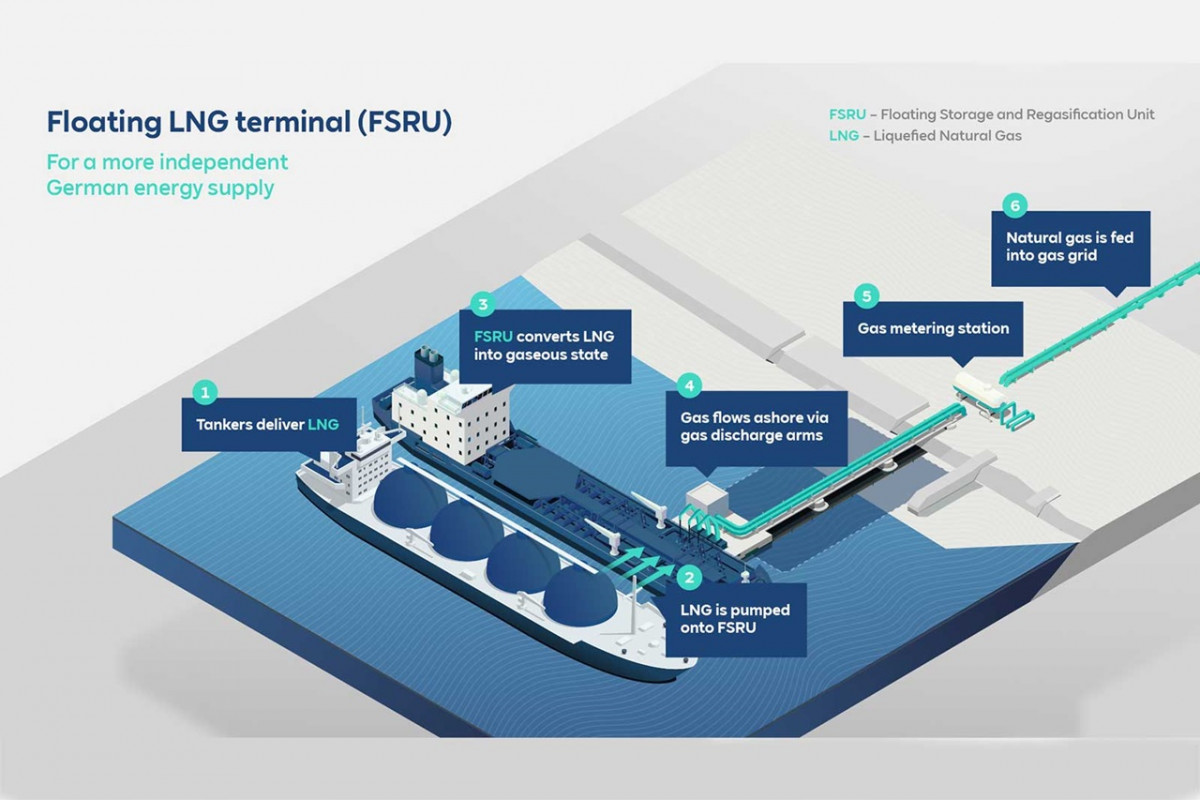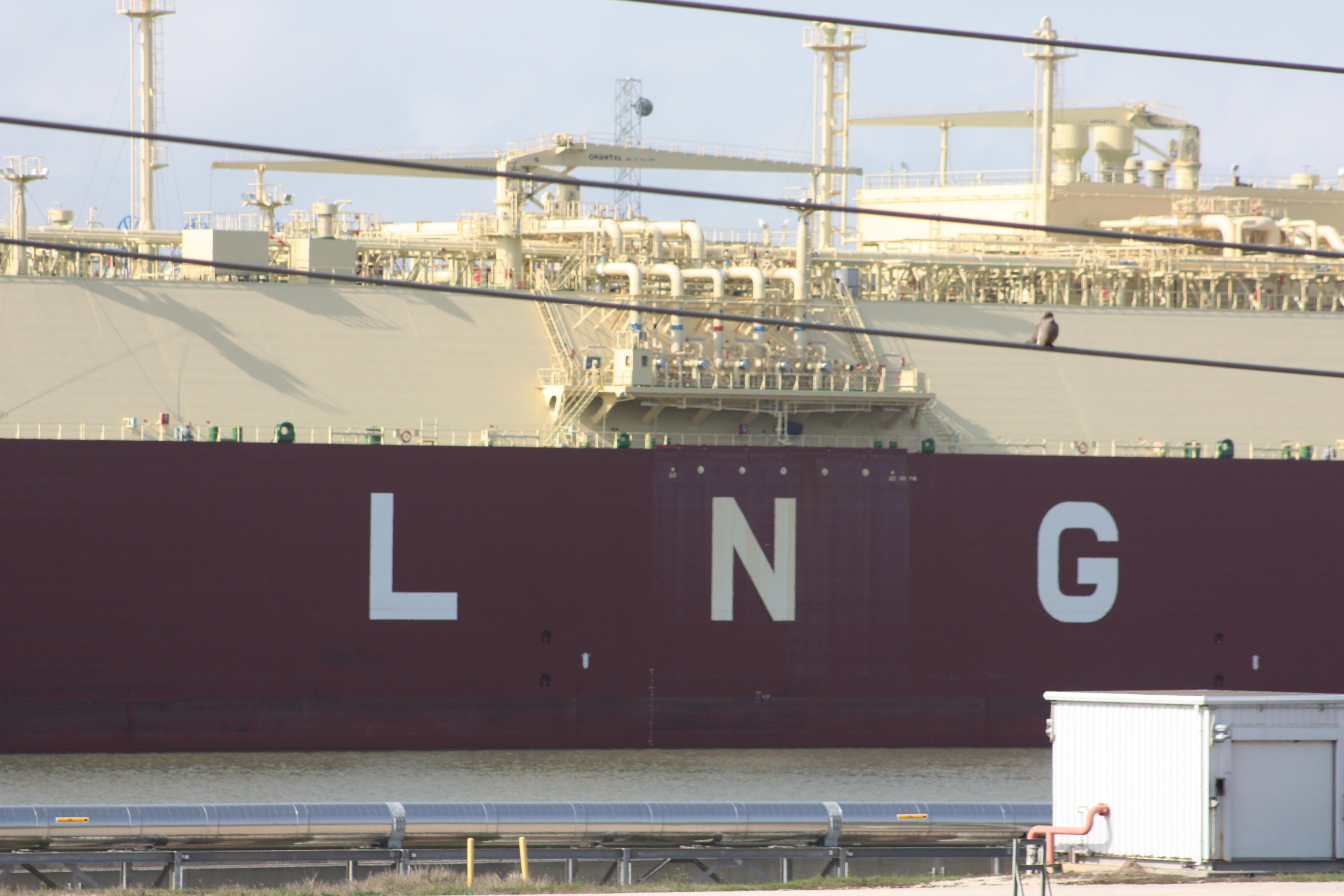Germany goes full steam ahead on LNG import infrastructure
Germany is quickly moving ahead with plans to set up its own import infrastructure for liquefied natural gas (LNG) as a way to lessen dependence on Russian energy. Economy and climate minister Robert Habeck visited the kick-off ceremony marking the start of construction of the country’s first LNG terminal in the northern port city of Wilhelmshaven. Energy company Uniper will operate a so-called Floating Storage and Regasification Unit (FSRU) in the city from as early as this winter.
“We have a good chance to do what is normally impossible in Germany,” said Habeck. “To build an LNG terminal within about 10 months and connect it to the German gas supply.” The minister signed contracts for a total of four such floating terminals.
The war against Ukraine has put efforts to diversify Germany’s gas supply away from Russian deliveries at the top of the political agenda. As part of these efforts, the government has announced it will push for the construction of domestic LNG import terminals, both floating and onshore units. Germany has a well-developed natural gas pipeline grid and is connected to terminals in neighbouring countries, but does not currently have its own port to receive LNG directly. The government argues that the existing European infrastructure is insufficient to receive the needed additional quantities when other countries also have a high demand. LNG is natural gas that has been super-cooled (−162°C) to a liquid state for easier storage and transportation, and is re-gasified at the destination before being fed into existing gas grids and pipelines.

As construction of a permanent onshore terminal takes years, the government is leasing four floating units in the short term with the support of energy companies Uniper and RWE. As well as the one in Wilhelmshaven, a second unit in Brunsbüttel should be in operation at the start of next year.
While LNG is a short-term measure for lessening dependence on Russian energy, the government is betting on renewables in the long term. “At the same time, H2-ready infrastructures must be designed from the outset, because in the medium term we will need to say goodbye to fossil fuels completely,” the economy ministry said.
The federal government and the state of Lower Saxony have also signed a letter of intent to closely work together setting up the necessary infrastructure to import green gases at industrial scale by 2025. This could be hydrogen produced from renewable electricity, or derivatives such as ammonia – which is easier to store and transport.
The government is also working out an LNG Acceleration Act to speed up planning and construction of necessary infrastructure. Minister Habeck explained after a government cabinet retreat that the law would reduce German permit standards to the minimum required by the EU "so that permits can be issued in a matter of weeks, not months or years.”
This could exacerbate an ongoing dispute with NGO Environmental Action Germany (DUH), which says the construction project in Wilhelmshaven threatens to destroy an underwater biotope and endangers harbor porpoises. DUH has filed an objection to the decision by the Lower Saxony state agency for water management and coastal protection to allow the construction of the floating LNG terminal.
The organisation says there is no evidence of the need for an LNG terminal and is demanding greater transparency and for the rule of law to be upheld. "Especially in times of crisis, the principles of the rule of law must be preserved,” said DUH managing director Sascha Müller-Kraenner. “This applies in particular to climate protection and environmental law. However, it is precisely these principles that are being undermined by the current approach of the federal and state governments. At the same time, civil society was and is deliberately excluded from fundamental decisions.”
Speaking to TV broadcaster RTL, Habeck warned DUH against taking legal action. "If we don't have the LNG terminals and the gas doesn't come from Russia, Germany's security of supply is not Germany guaranteed,” he said, as quoted by Spiegel. The lawsuit could make Germany “more dependent on Russian energy imports,” he added.

